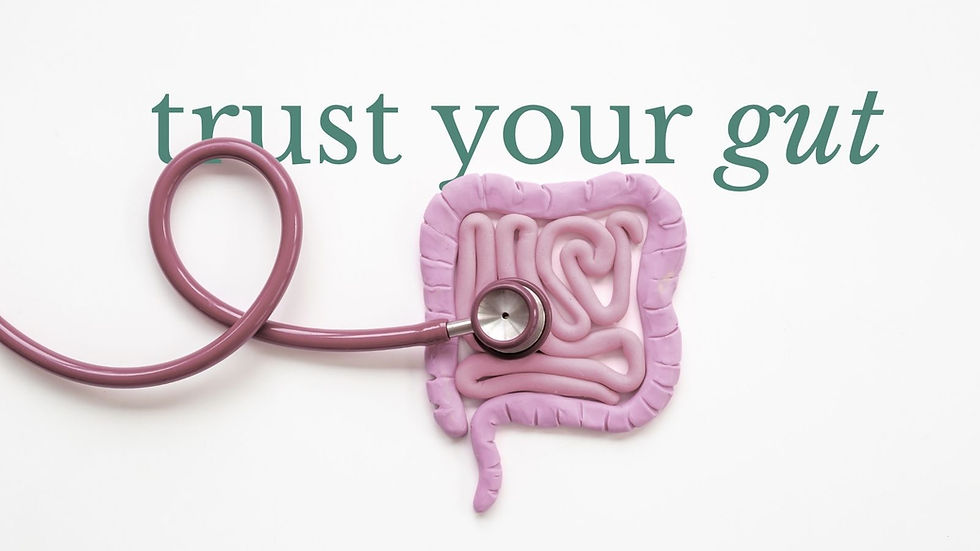What Your Gut Has to Do With Pelvic Floor Recovery
- Michelle Webb
- Aug 15, 2025
- 2 min read
When we think about gut health, we usually focus on digestion, immunity, or energy levels. But one often-overlooked connection? The gut and the pelvic floor.
Especially in the postpartum phase, gut health plays a major role in how your pelvic floor heals, functions, and feels. If you’re dealing with bloating, constipation, or a lingering sense of pressure "down there," your gut might be part of the story.

Why Gut Health Matters After Birth
Postpartum recovery isn’t just about the uterus and muscles healing. Hormonal shifts, disrupted routines, stress, and lack of sleep can all affect digestion. You might notice more bloating, gas, constipation, or general discomfort—and it’s not just inconvenient.
When your gut isn’t functioning well, it creates pressure in the abdomen, which directly impacts the pelvic floor. That can mean:
More strain on already healing muscles
Increased risk of leakage or heaviness
Slower recovery from prolapse or tearing
The Pelvic Floor’s Role in Bowel Health
Your pelvic floor is a key player in healthy bowel movements. These muscles help control when you go, how effectively you empty, and how much strain is required. If your gut is sluggish or inflamed, your pelvic floor ends up doing extra work—and that can lead to dysfunction.
In fact, chronic constipation is one of the most common contributors to pelvic floor issues. The more you strain, the more likely you are to weaken or misalign those muscles over time.
How to Support Gut and Pelvic Floor Recovery
The good news: you don’t need a complete life overhaul to make an impact. Small, mindful changes can go a long way in supporting both systems.
1. Prioritize fiber Aim for a variety of fruits, vegetables, legumes, and whole grains to keep things moving. If you’re postpartum, easing into fiber gradually can help prevent gas or bloating.
2. Stay hydrated Water helps fiber do its job. Dehydration can worsen constipation and slow down healing.
3. Try fermented foods Incorporate gut-friendly options like yogurt, kefir, kimchi, or sauerkraut. These natural probiotics support digestion and reduce inflammation.
4. Don’t ignore the urge Holding in bowel movements can increase pelvic floor strain. Make time (and space) to go when you need to.
5. Breathe and relax Deep, diaphragmatic breathing helps reduce intra-abdominal pressure and calm the nervous system, which supports both digestion and pelvic floor function.
A Whole-Body Approach to Healing
Gut health and pelvic floor health are more connected than most people realize. If you’re struggling with one, it’s worth paying attention to the other.
You don’t have to figure it all out on your own—a pelvic health therapist can help you connect the dots and find simple, sustainable ways to support your healing.


Comments